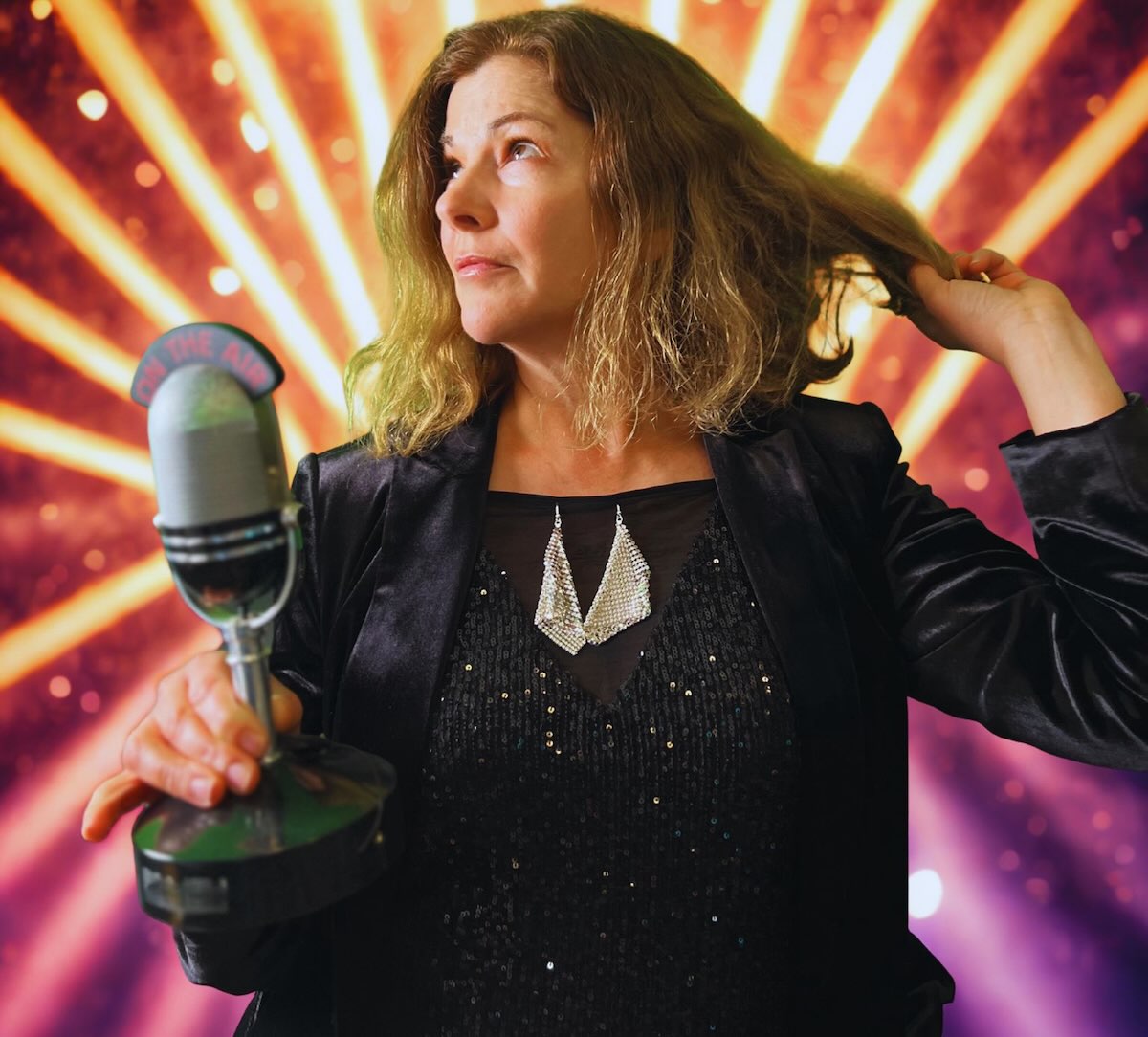This Delco NPR Host Is Positively Obsessed With Eurovision
She's hosting a big watch party of the weird event this Saturday in Philly.

Eurovision devotee Maiken Scott, who hosts WHYY’s The Pulse, which you can hear on 125 NPR stations around the country (photo courtesy Maiken Scott)
Whether you know it or not, much of the world (especially much of the other side of it) is currently glued to the TV for the annual music competition known as Eurovision. You can include in that list of intense viewers Delco’s Maiken Scott, the host of WHYY’s science show The Pulse, syndicated by NPR to 125 stations nationwide.
“This is truly the Olympics of pop,” Scott explained to me earlier this week from Karlsruhe in her homeland of Germany, where she has been visiting relatives and, yes, watching Eurovision unfold before she hops a Thursday flight back to Philly so she can host a big watch party for the Eurovision finale this Saturday.
If you’re unfamiliar with Eurovision, I’ll give you a brief primer, as Scott gave me during our call. Each European country — plus Australia and Israel — can enter one of its bands or singers into the Eurovision competition. And then the artists battle it out, a sort of international battle of the bands, eventually culling the herd to 26 artists for Saturday’s Grand Final, as Eurovision refers to it.
“It’s just wacky and weird,” Scott observes. “What could be weirder than a bunch of Germans singing about Genghis Khan and pretending to be Mongolians? There’s a lot of showmanship. It’s not just the music. There’s a whole ‘thing.’ You have to really bring it on stage or you aren’t going anywhere.” (If you want to see just how weird things can get, check out this compilation of the weirdest moments which, yes, includes the aforementioned Germans.)
Eurovision has been around for a long, long time, held annually (well, except during COVID) since 1956. (Take that, The Voice, American Idol, and, ugh, The Masked Singer.) As Scott sees it, the event gave post-war Europe a chance to unite around the common theme of music in a spirit of competition. And Eurovision isn’t just filled with a bunch of no-name acts, although it does have plenty of them. Some of these former Eurovision winners might be familiar to you: ABBA and Céline Dion.
Last year, Scott decided to organize a watch party and dance party at the German Society of Pennsylvania on Spring Garden Street. She said she only sold a handful of tickets in advance and thought she’d just watch the finale with some of her friends while drinking German beers. But then she looked out the window and saw a line around the corner. In the end, about 200 people showed up, so she decided to do it again this year.
“People will show up with their country’s flags,” she says. “It’s just so much fun. I reached out to every single affinity group — from local Icelanders to the Poles — and it will be great to see everyone come together.”
Notably, Eurovision has banned Russia since the start of its war against Ukraine. And, well, the world is a very complicated place right now. People have lots of feelings.
“Last year, we made an announcement just asking everyone to respect the original thought and thinking behind the competition of bringing people together,” Scott explains. “And we’ll certainly do that again this year. This is about the joy of music and respect for performers from all countries.”
Should you wish to immerse yourself with a bunch of European expats in the strange, strange Eurovision culture, you can do so at the German Society this Saturday beginning at 2:30 p.m. $20 gets you food, one drink ticket, and probably the most unique Saturday you’ve spent in a long time. Tickets here. Eurovision is also streaming on Peacock.


